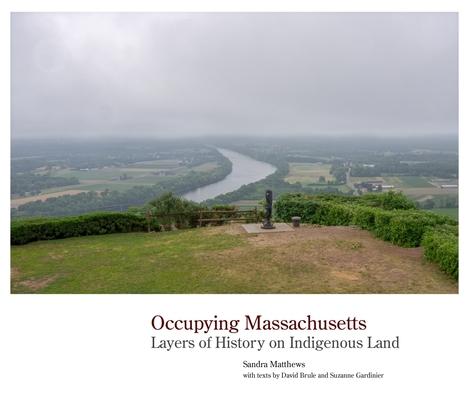
Book
Occupying Massachusetts: Layers of History on Indigenous Land
(Write a Review)
Hardcover
$40.00
Occupying Massachusetts: Layers of History on Indigenous Land is an art book that engages with history. Featuring photographs of dwellings and vernacular structures found in rural Massachusetts, the book is a meditation on the human occupation of land, with an emphasis on the long presence of Indigenous people and the waves of settlement by people from other countries that began during the early 1600s and continues today.
Utilizing a muted color palette, Matthews's photographs of both structures and historical markers are subtle and haunting. They suggest the presence of histories, embedded in the landscape but often invisible. Although the book is focused on Massachusetts, it implicitly raises larger issues of settlement and nationhood. How did the United States of America come to occupy its land? How is this story told? As a longtime occupant/occupier of Massachusetts herself, Matthews aims to understand more deeply the land on which she lives.
The main text of the book comes from photographs of historic markers, which were installed around the state at different times by different interest groups. The words on these markers describe early relations between Indigenous people and largely English settlers, from diverse points of view. In this way, the book explores how difficult histories are written and how they change over time. Concluding essays by Indigenous activist David Brule and poet Suzanne Gardinier provide important perspectives as well, connecting the past and future. Occupying Massachusetts is a moving story whose message will be appreciated for years to come.
Occupying Massachusetts: Layers of History on Indigenous Land is an art book that engages with history. Featuring photographs of dwellings and vernacular structures found in rural Massachusetts, the book is a meditation on the human occupation of land, with an emphasis on the long presence of Indigenous people and the waves of settlement by people from other countries that began during the early 1600s and continues today.
Utilizing a muted color palette, Matthews's photographs of both structures and historical markers are subtle and haunting. They suggest the presence of histories, embedded in the landscape but often invisible. Although the book is focused on Massachusetts, it implicitly raises larger issues of settlement and nationhood. How did the United States of America come to occupy its land? How is this story told? As a longtime occupant/occupier of Massachusetts herself, Matthews aims to understand more deeply the land on which she lives.
The main text of the book comes from photographs of historic markers, which were installed around the state at different times by different interest groups. The words on these markers describe early relations between Indigenous people and largely English settlers, from diverse points of view. In this way, the book explores how difficult histories are written and how they change over time. Concluding essays by Indigenous activist David Brule and poet Suzanne Gardinier provide important perspectives as well, connecting the past and future. Occupying Massachusetts is a moving story whose message will be appreciated for years to come.
Hardcover
$40.00